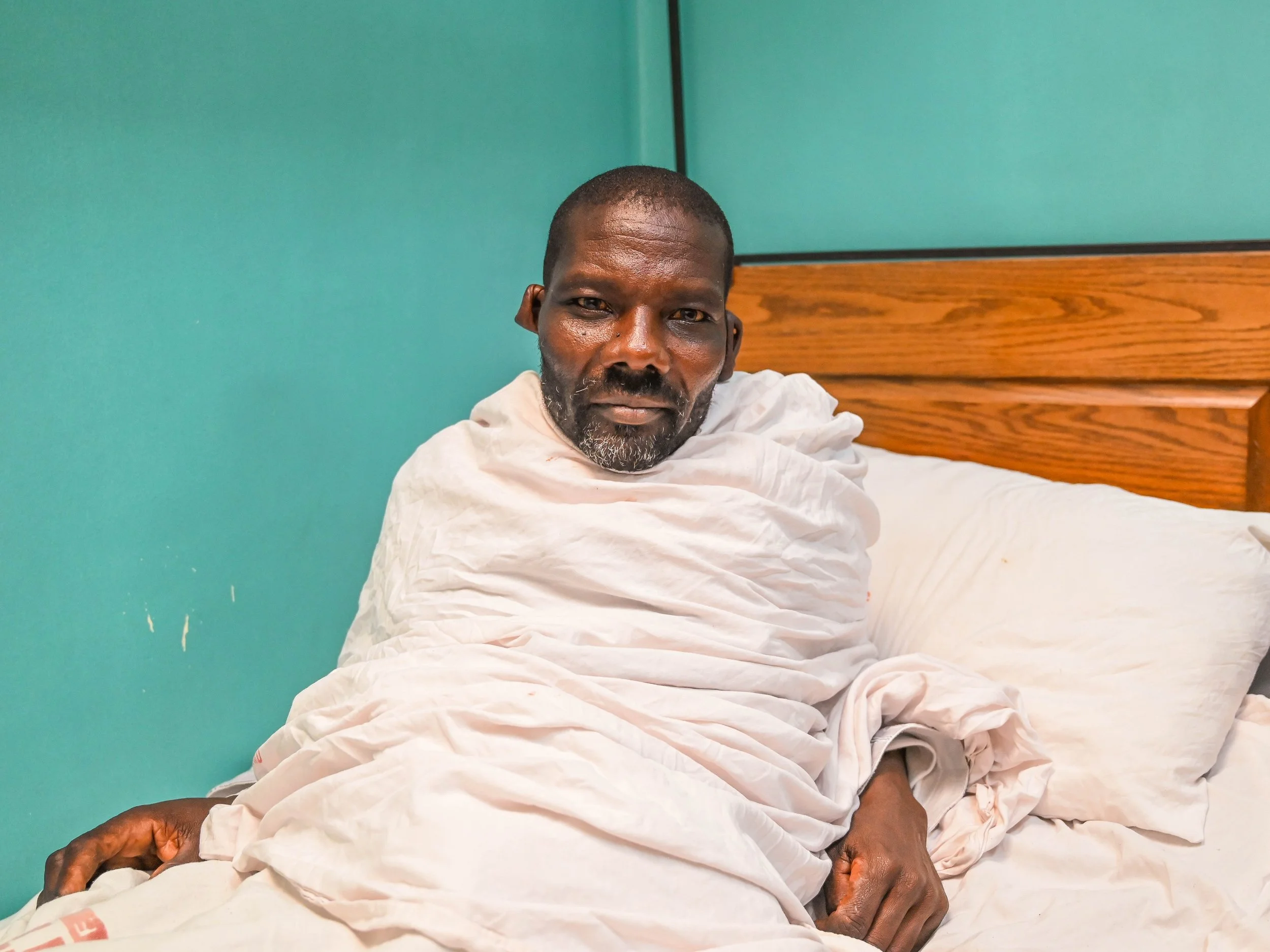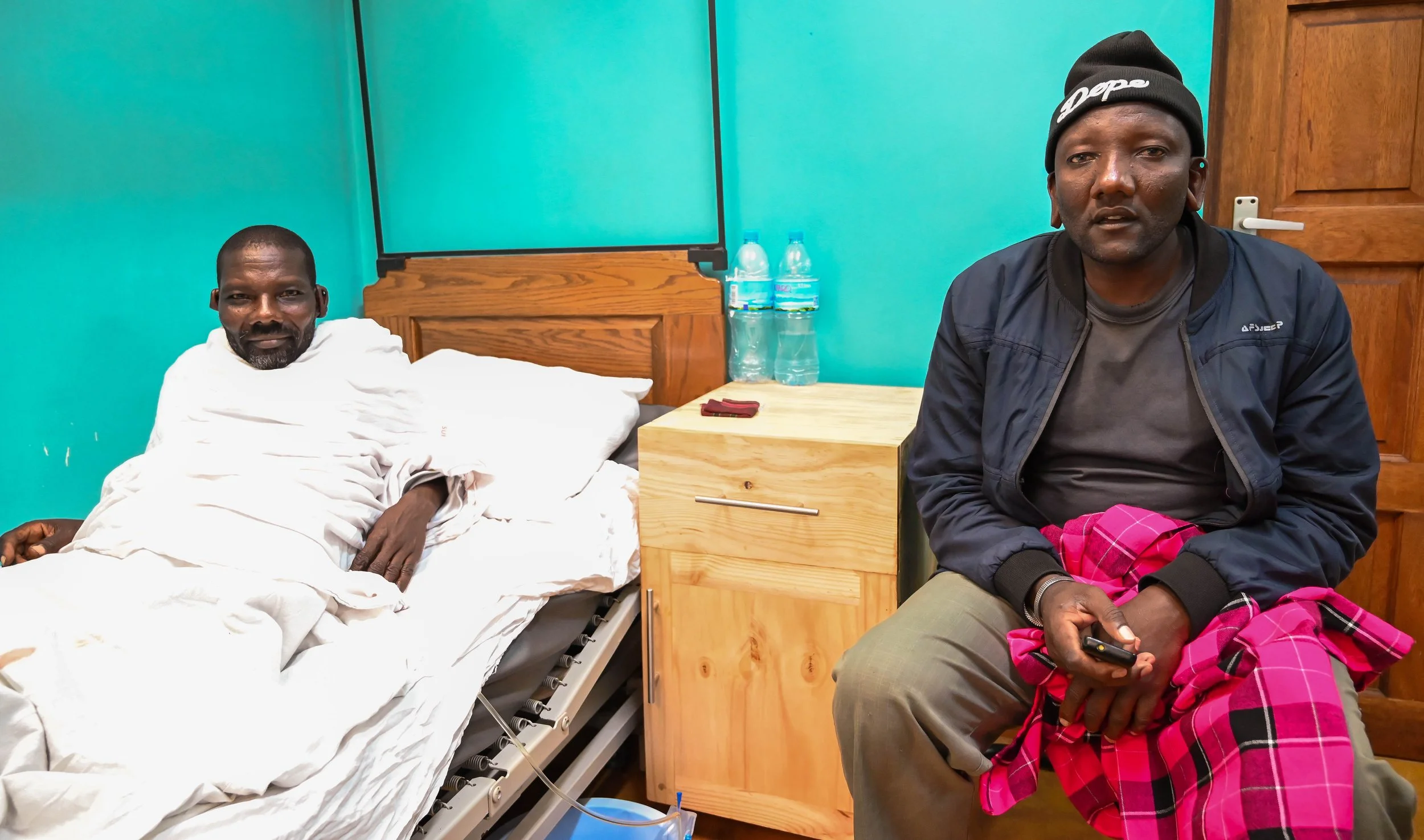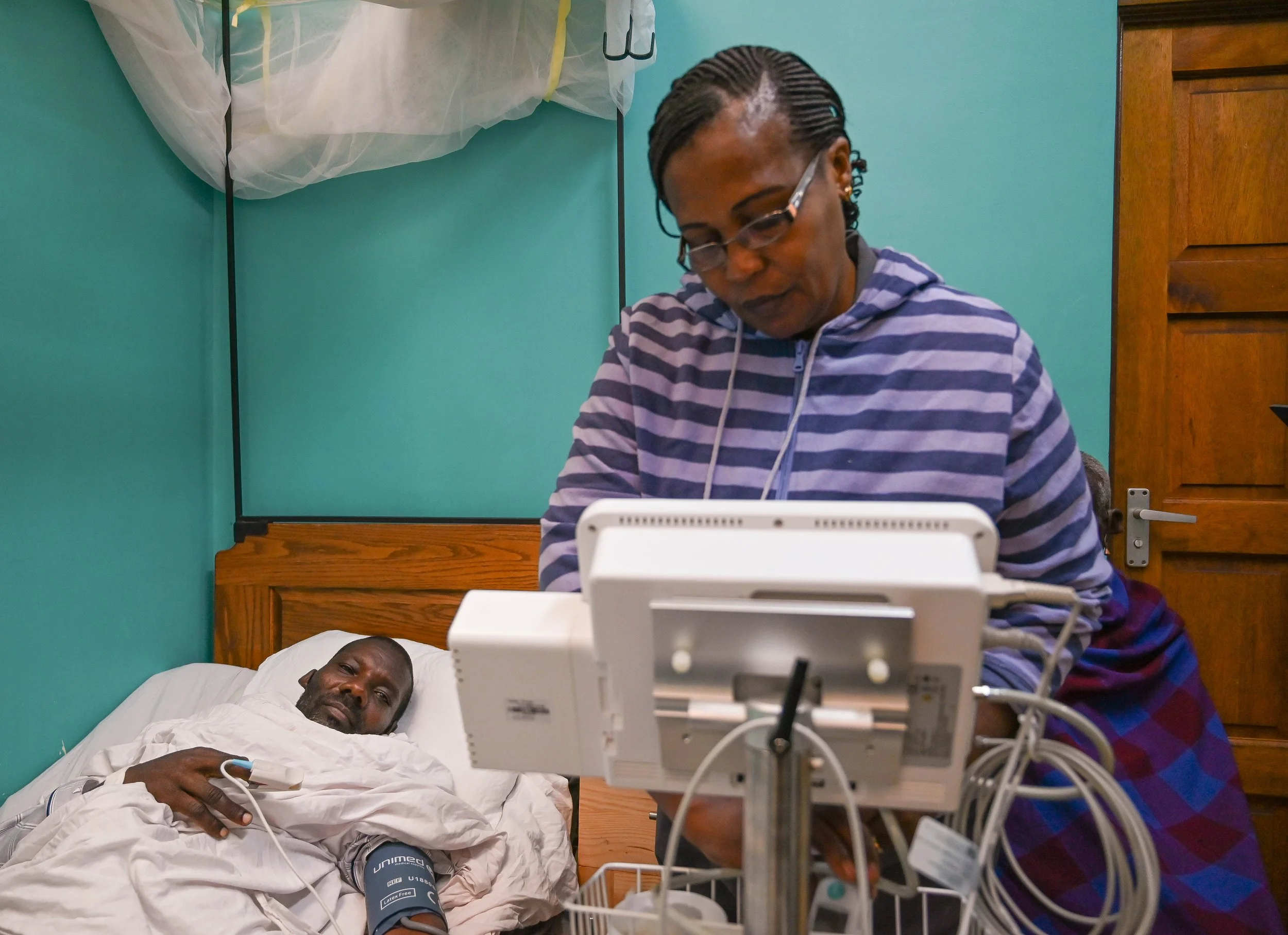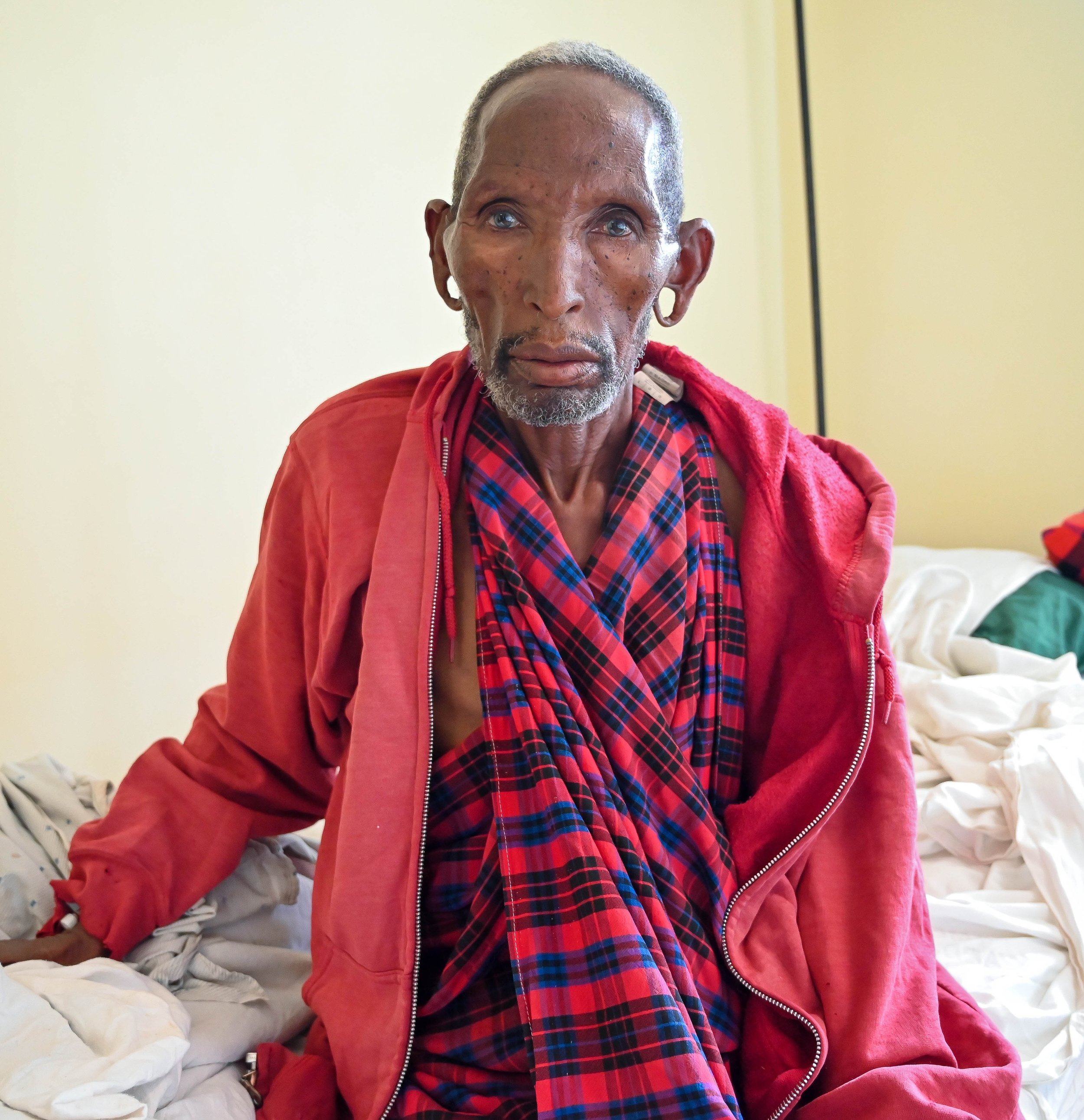Moipei
Moipei* is a 54-year-old pastoralist from Loliondo, an area traditionally Maasai with pastoralism as the primary land use. He has spent his entire life tending to his cows and takes great pride in his ability to care for them. That's why when he had a herding accident, the thought of leaving his cows alone in the fields devastated him.
“Because of the drought, there is no more grass for my cows to feed on, so I usually climb trees and cut some green leaf branches. As I was up there a week ago, I slipped and fell to the ground, falling on a huge stick that pierced my stomach. I tried to stand up, but the pain was too much. I was alone with the cows and was in too much pain to shout for help. Luckily I had a mobile phone, so I called my younger brother at the homestead and asked for help.”
Moipei was seriously injured, but he believed traditional herbs and oils would cure him, as they had many times before.
“With the nearest hospital miles away, my family and I don’t go to hospitals. We often rely on sheep oil, which works every time! After my accident, I drank a big cup of sheep oil three times a day, sometimes even more! But it didn’t help; if anything, the pain got worse and I could barely stand. After three days, I visited the local dispensary. They gave me medicine, sent me home and asked me to return in a few days if the medicine did not work.”
Moipei took the medicine for four days, but he got worse. While he could take small steps before, he now could not move. His brother decided to bring him to FAME. He hired a private car as Moipei was in so much pain that he couldn't sit up on a bus and had to lie down during the drive.
Once at FAME, the doctors and nurses were shocked by his injury's severity and knew they had to act quickly. He was admitted to Ward 1 and an X-Ray was performed. It was determined that he needed urgent surgery.
Moipei poses with his brother.
“After I woke up from surgery, I was still in pain, but the doctors have been giving me injections and pills and now I can even sit up, almost! Look! The nurses have monitored me closely and have taken care of me, so much so the pain is gone! The doctor says I might be going home tomorrow. I’m looking forward to going back to my cows! Thank you, FAME doctors and nurses, for helping me. God bless you.”
“When Moipei got very sick, I was scared and knew I had to bring him to FAME, even though it’s miles away from home. The journey was long and difficult, but we made it and received urgent care. The doctors and nurses have been kind and gentle with my brother and this comforted him, which I believe helped his healing. Thank you, FAME, for saving my brother’s life.”
FAME’s Social Worker, Kitashu Ngananga, a Maasai from Ngorongoro, has something to say about the sheep oil.
“We [Maasai’s] use sheep oil as a local herb treatment. It’s very common. When someone gets sick, they slaughter a fat sheep. We believe that sheep are blessed animals and therefore cure illnesses. Even I drink sheep oil! [chuckles]. However, we are teaching our people that traditional medicine has its limits and they should combine it with modern healthcare to ensure everyone has access to the best possible care.”
*The patient’s name has been changed to protect his privacy and permission was secured to share his story. The quotes have been translated from Swahili to English.















